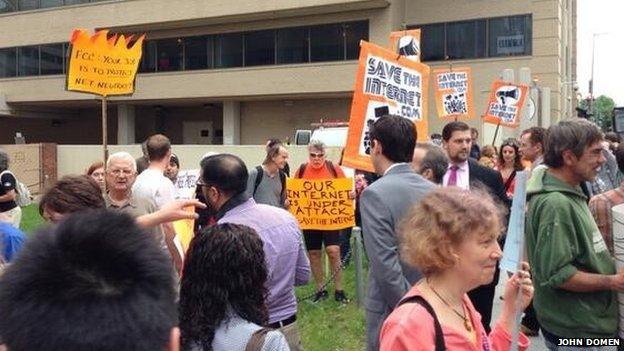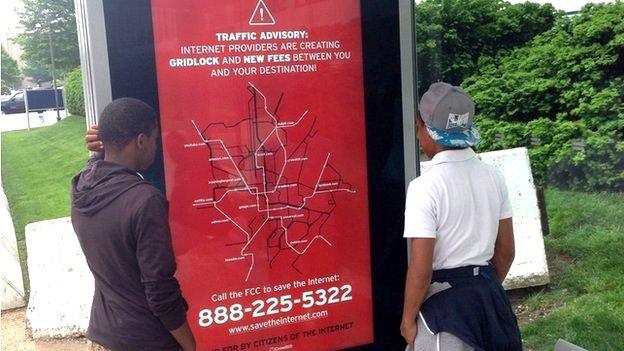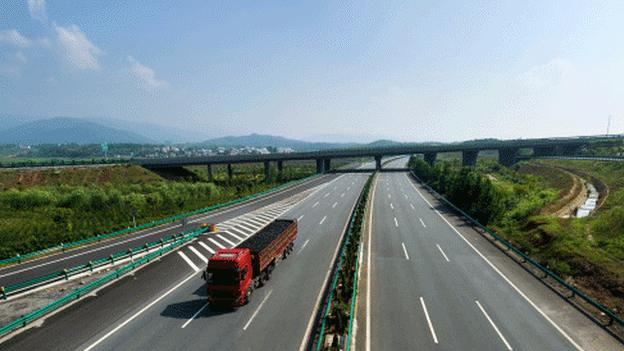FCC votes to proceed with net neutrality rules
- Published

Protesters have been gathering outside the FCC headquarters as the vote goes ahead
US telecom regulators have voted to proceed with a plan that critics say could sound the death knell for net neutrality - the principle that all internet traffic is treated equally.
The plan could allow internet service providers (ISPs) to charge a fee for prioritised access to their networks.
Critics argue that the new rules could create a two-tiered internet, with a slow lane for those unprepared to pay.
The proposals will now be open to public consultation.
The controversial proposals have drawn an unprecedented level of scrutiny to the Federal Communication Commission (FCC) and its vote, which was passed with three commissioners voting in favour and two against.
The meeting of the five commissioners was repeatedly interrupted by protesters, several of whom were removed from the room.
Each commissioner gave his or her views on the proposal with both of the Republican commissioners opposing the new rules.
All acknowledged that the issue had attracted a huge number of critics and agreed that the rules being discussed would govern the "future of the internet".
But those in favour of the proposals pointed out that they were just that - proposals - and said that the vote merely "started an important process" of consultation.
Several commissioners rejected the idea that the proposals meant that content providers would have to pay to have their traffic delivered faster.
The plan is the brainchild of FCC chairman Tom Wheeler who had had to rethink his open-internet rules following a court case in January, which left them in legal limbo.
The court ruled that the FCC did not have the right to prevent ISP Verizon charging a fee for traffic to be carried on its network.
Since then both Comcast and Verizon have started charging Netflix to carry its service.
The new rules are, according to Mr Wheeler, intended to preserve an open and free internet. He said he understood the issue "in his bones".
"The consideration we are looking at today is not about whether the internet should be open but how and when we have rules in place to ensure an open internet," he said.
Details of the plan were widely leaked ahead of the vote and there has been mounting opposition from tech firms, consumer groups and venture capitalists, particularly over a proposal that ISPs be allowed to charge fees if they were "commercially reasonable".
Thousands of people have written to the FCC in the past few weeks urging it to rethink its plans.
As the commissioners voted, a growing group of activists gathered outside the FCC headquarters, with "Save the Internet" banners.
Many are campaigning for the FCC to reclassify ISPs as utilities, which would allow greater regulation.
The public now has until 15 July to make its opinions known. Mr Wheeler said the FCC would "listen closely" to the views.
- Published14 May 2014

- Published14 May 2014

- Published9 May 2014
